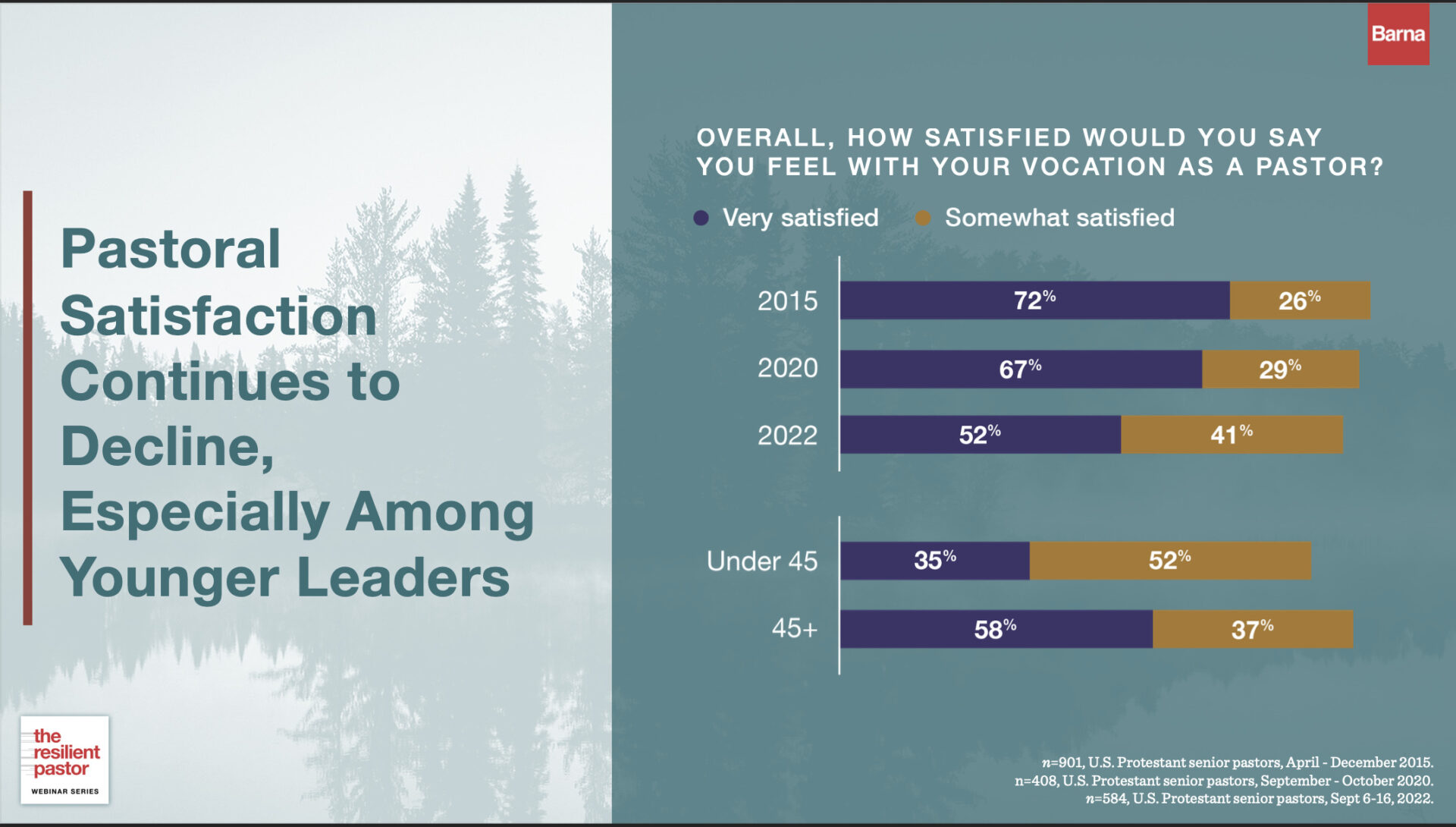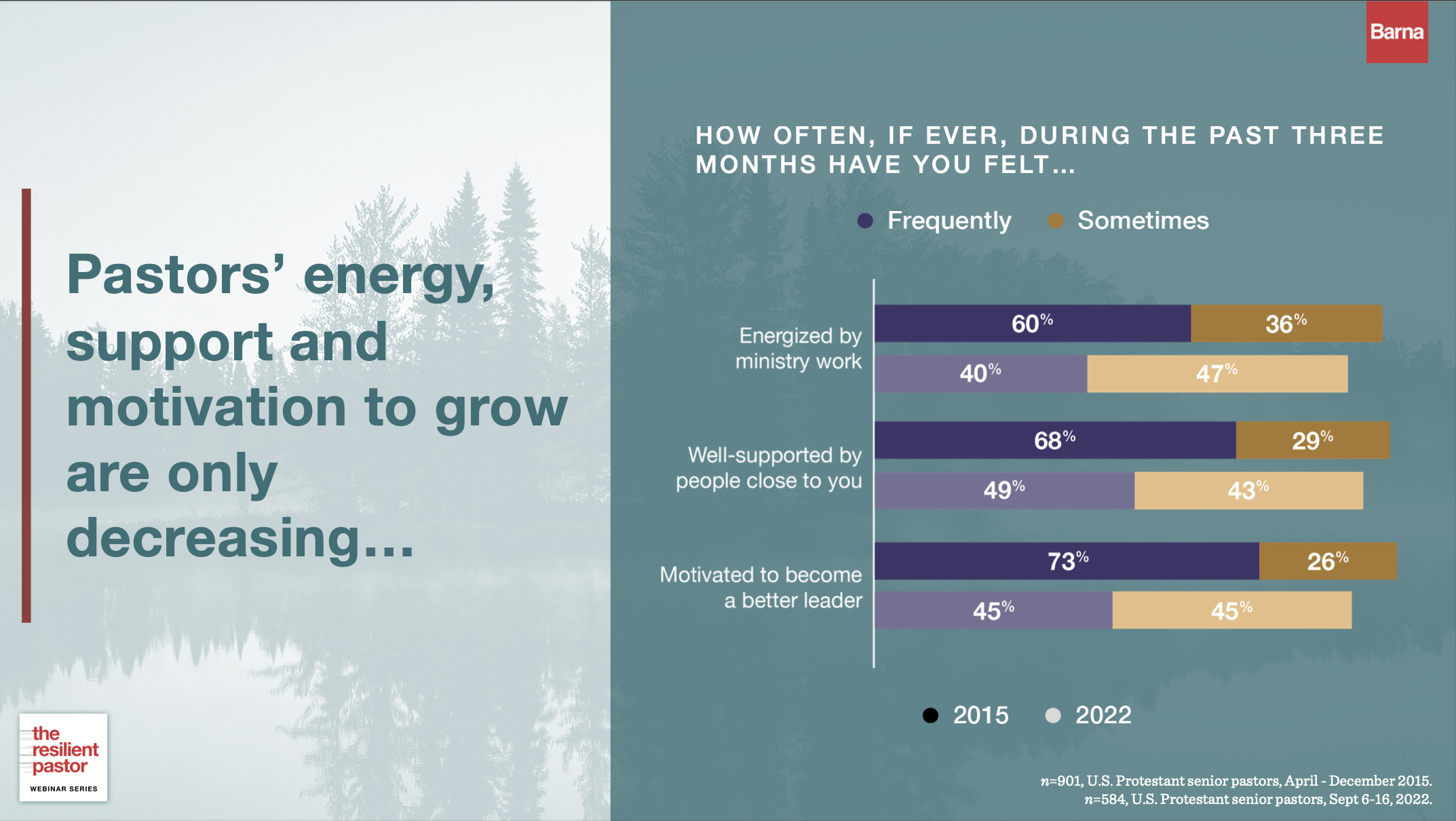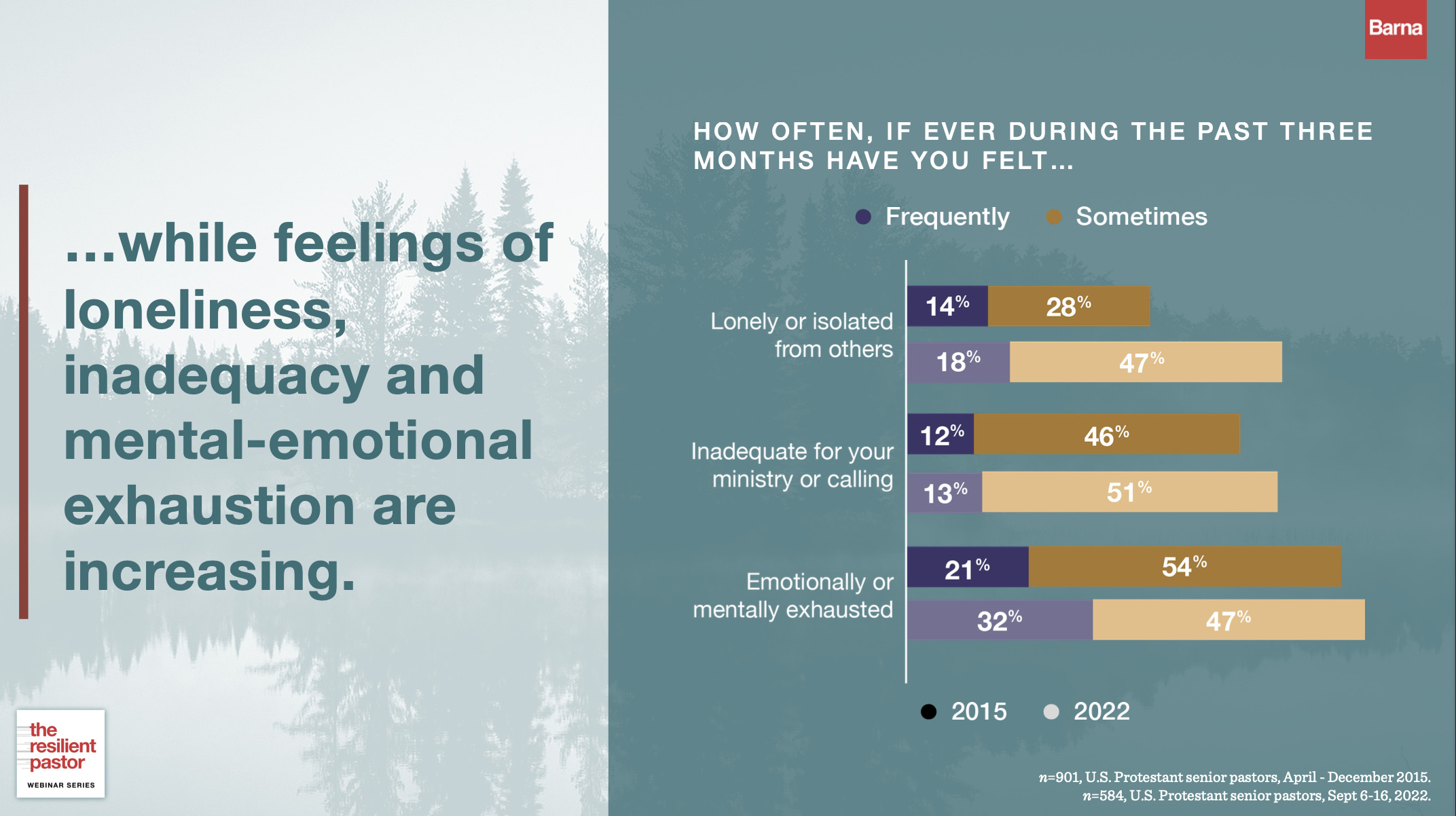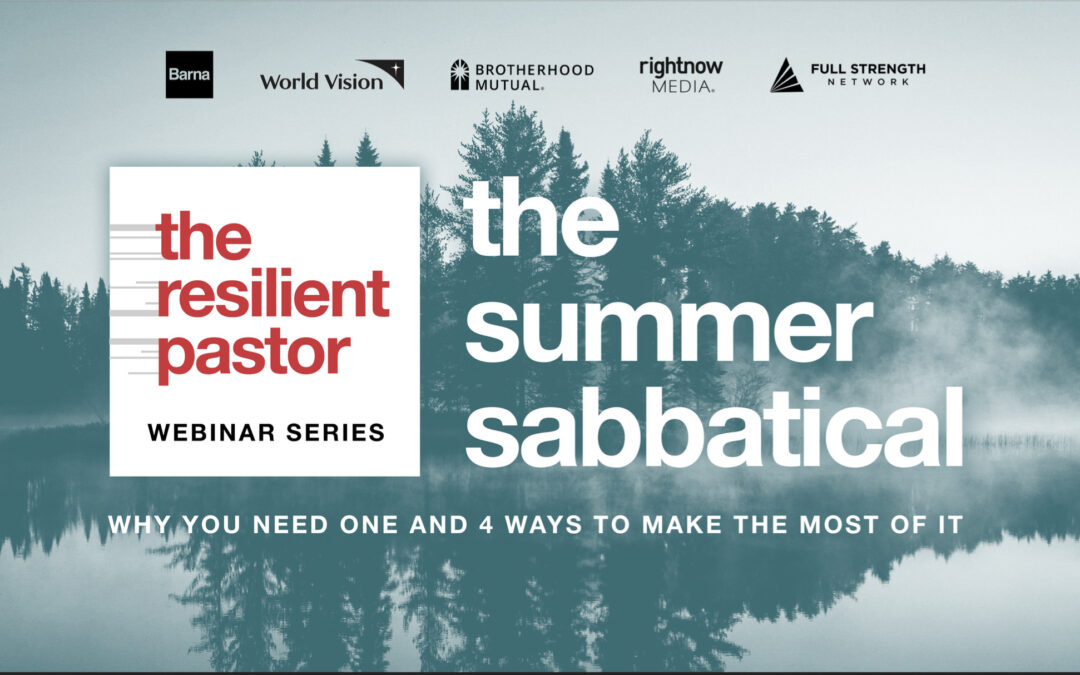I have great interest in Pastoral Well-being because I, myself am a pastor and when organizations like Barna release new data it is interesting for me. Secondly, I am doing my doctoral work on helping pastors develop resilience and this data helps to frame my work.
Here are some key takeaways as I read through the report and listened to “The Summer Sabbatical” webinar.
Pastoral Satisfaction is in decline. Especially among younger pastors. This is very important because in the Adventist church I have heard that we are struggling to hire and keep our young pastors. One of the findings in the research was that pastors who experienced the highest level of satisfaction were spending most of their work and energy in their area of giftedness. I wonder how often our young pastors are able to spend their ministry related time developing their area of giftedness. A second finding was that pastors who reported the greatest satisfaction had influence over the vision of their church. I have found that for many pastors this is not the case. Which would make sense that pastors try to move churches after several years, or how pastors might want to check out if their churches don’t allow pastors to have influence over the vision of the church. This sparks a much greater conversation about pastoral training, adaptive capacity, the importance of the length of stay of pastors, among other things.
Pastor’s don’t have the energy to grow and don’t feel like they have enough support to do so. I can attest to this feeling. In the past when I have been a Sole pastor, it is difficult to have the energy to grow when there are so many demands on one’s time. Pastoring can be extremely difficult especially if you feel like you are going at it alone.
Pastor’s are increasingly feeling more lonely, inadequate, and are mentally and emotionally exhausted. I am curious as to how much Covid has affected this. I know we often talked about how the pandemic accelerated a lot of the changes in the church world, and I wonder if this data shows how much these feelings of inadequacy grew during that time and afterwards.
Pastors are less likely to receive professional mental health services. I wonder what makes pastors resistant to reaching out for help?
43% of pastors practice self-care but only 13% are satisfied with the quality of their self-care. (I will post a follow up with the findings of better self-care)
We need to invest is a better quality of self-care practices.
Pastors can begin to incorporate healthier practices TODAY!! The good news is that pastors who practice pastoral self care can find joy and rank higher in life and job satisfaction. It is easy to feel so overwhelmed with all of the responsibilities of being a pastor and the never ending todo list to feel like there isn’t enough time for self-care. But the research shows that people who practice healthy self-care find more satisfaction in work and life. (I will write a future post on healthy self-care because I think there are a lot of misconceptions about self-care and the data back it up.)
One simple thing pastors can begin to do today is incorporate Sabbath practices into their lives. This my be difficult for our tribe of Adventist pastors as the idea of Sabbath is often tied to a particular day. But practices of Sabbath can be smaller moments that help to recenter us in the presence and peace of God. (Again, a future post on this will need to expand on this).
Bonus. Practice a Summer Sabbatical. For Seventh-day Adventist Pastors, they will need help on this one from supportive Conference Presidents and Admin to educate our churches on the importance of Rest and Sabbaticals.



